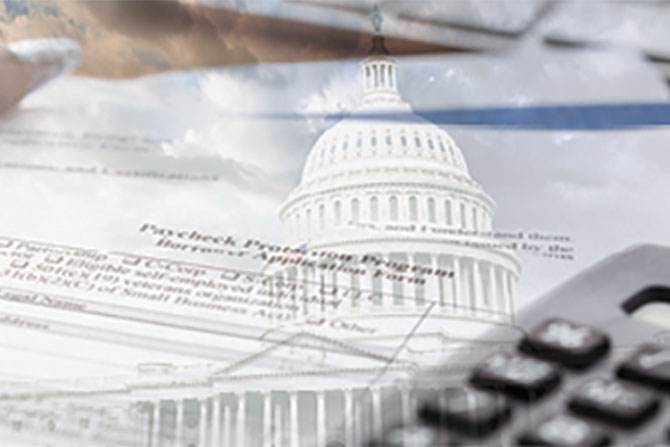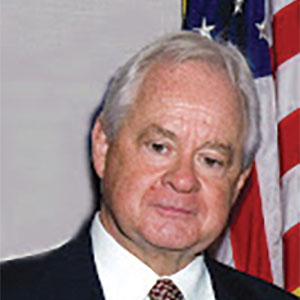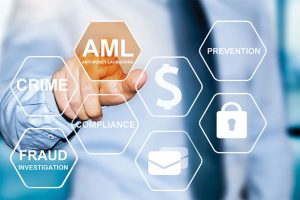By John W. Anderson, Executive Vice President, New Mexico Bankers Association
The Governor’s annual State of the State speech, which historically marks each legislative session’s commencement, was not scheduled. The Governor indicated that the speech would be delivered remotely in the near future.
The 2021 sixty-day legislative session opened Tuesday, Jan. 19, under the most unusual circumstances. Due to the ongoing COVID-19 pandemic, the state capitol is off-limits to the public and lobbyists for the entirety of the session. Only legislators, certain media members and legislative staffers are admitted to the capitol.
The Governor’s annual State of the State speech, which historically marks each legislative session’s commencement, was not scheduled. The Governor indicated that the speech would be delivered remotely in the near future. However, one week into the session, the Governor recorded remarks from her office in the state capitol. She opened with an announcement that schools will be able to open effective in February. In the 25-minute speech, she called on the 2021 Legislature to do the following:
- Dedicating at least $200 million in the capital outlay package-half of lawmakers’ allocation-to broadband investment. The coronavirus pandemic has highlighted the lack of technological infrastructure in parts of the State. Nearly one-quarter of New Mexico’s students lack access to the internet at home;
- Increase spending on suicide prevention by 800% as part of a plan to improve mental health care;
- Establish an ombudsman’s office to focus on the special education needs of students and families;
- Send voters a proposed constitutional amendment that would withdraw an extra 1% from New Mexico’s largest permanent fund to pay for early childhood education programs.
The Governor also said New Mexico “will enact the country’s toughest methane and air pollutant rules in the oil and gas industry, finally cracking down on waste and pollution in a way that is not punitive but innovative” and creates more revenue for schools.
Lujan Grisham also renewed her request for the legalization of marijuana for adults. She described it as a way to bolster an economy now heavily dependent on oil and gas production, a volatile government revenue source. “I have no interest in another year of thousands of New Mexicans eager to get to work and make their future in this industry being told ‘no,’ just because that’s easier than doing the hard work to get to ‘yes’” Lujan Grisham said. “When we emerge from this pandemic, we can have the same old economy with the same old boom-and-bust future, or we can roar back to life, breaking new ground and fearlessly investing in ourselves, in the limitless potential of New Mexicans.”
Lujan Grisham also renewed her request for the legalization of marijuana for adults. She described it as a way to bolster an economy now heavily dependent on oil and gas production, a volatile government revenue source.
The Governor’s priorities for the 2021 Legislature include:
Helping the New Mexico Economy
Pandemic relief for small businesses:
- Modifying the Small Business Recovery Act of 2020 to ensure the state funding is accessible to more New Mexico small businesses. The act, approved by the Legislature in the summer 2020 special session, originally allocated $400 million in funds from the New Mexico State Severance Tax Fund to provide loans to New Mexico businesses and nonprofits that experienced financial hardship due to the COVID-19 pandemic. The legislation would supplement the $100 million in small business grants already allocated.
- Providing flexibility and opportunity to restaurants and other licensees by allowing alcohol delivery and reforming the State’s liquor licensure program.
Expand opportunity for more New Mexico business-owners and keeping local dollars local:
- Reforming the state procurement code to include a preference for Native-owned businesses, minority-owned businesses, women-owned businesses and promote spending within New Mexico through set-asides for the required percentage of business contracts.
Establish an essential new revenue source for the state and employment source for tens of thousands of New Mexicans:
- Legalizing adult-use recreational cannabis through legislation that protects the State’s medical cannabis program, provides workplace safety and roadway protections, and enforcement and clear labeling of products.
Ensure every New Mexican has the opportunity to create a fulfilling career with the required education and skills and without burdensome debt:
- Funding the Opportunity Scholarship at $22 million would benefit up to 30,000 students.
- Budgeting $4 million for a pilot project to target four-year degree-seeking students who previously received the Lottery Scholarship and lost eligibility but have one or two semesters left to complete their degree.
Support the Education, Health and Opportunity of New Mexico Children and Families
Protect New Mexico consumers:
- Reforming predatory lending practices by limiting annual interest rates and increasing maximum loan size.
Invest in generational improvements in education and well-being:
- Providing for a 1% distribution of the State’s multi-billion dollar Land Grant Permanent Fund for early childhood education, which requires voter approval.
Reduce the cost of health insurance and medical expenses for working families:
- Creating a Health Care Affordability Fund that will replace a recently phased-out federal fee, expanding coverage to up to 23,000 uninsured New Mexicans in its first year and driving down premiums for tens of thousands of residents who receive coverage through the state exchange.
Boost economically disadvantaged school districts and communities:
- Establishing a Family Support Index that improves the economically disadvantaged metric in the at-risk index and calculates an at-risk index for each school to provide more precise information for local funding decisions and budget oversight; sets an annual disparity calculation that ensures final State Equalization Guarantee payments are equalized with a per-pupil floor; consolidates funding, support and accountability for programs associated with addressing Yazzie-Martinez litigation; and ensures reversions for public school support revert to the state support reserve fund rather than the general fund, which will keep funds intended for public education available for educational programs.
Address needs of differently-abled New Mexico students:
- Creating an ombudsman’s office dedicated to special education to investigate and advocate for reforms on behalf of families in the state special education system.
Protecting health care providers:
- Eliminate a provision within state law that criminalizes health care providers who perform abortion services.
Rooting Out Racial Injustice in New Mexico:
Acknowledge and reduce institutional racism within government:
- With the Governor’s Council for Racial Justice’s support, enact Senator Linda Lopez’s previous legislation that addressed equity and antiracism in hiring, retention, pay equity, accountability in government and more.
- The Council for Racial Justice, which has met regularly since August, has also endorsed the proposal to pull a percentage of funding from the Land Grant Permanent Fund for early childhood education, among other proposals, including the establishment of a race equity director in the Governor’s Office.
Promoting and Maintaining the Clean Environment New Mexicans Deserve:
Creating a Clean Fuel Standard:
- Reducing emissions from the transportation sector. In 2018, 15% of New Mexico’s greenhouse emissions were attributed to transportation, second only to the oil and gas industry’s emissions. A Clean Fuel Standard reduces the emission profile that includes its production, shipping and use. A Clean Fuel Standard would apply to those who refine, blend, make shipping and use. A Clean Fuel Standard would apply to those who refine, blend, make or import fuel-not fuel retailers. With a Clean Fuel Standard, transportation emissions will be reduced by 230,000 metric tons of CO2 equivalents annually, as the clean fuel standard requires a reduction of 10% by 2030 and 20% by 2040.
Promoting and Maintaining the Clean Environment New Mexicans Deserve:
Creating a Clean Fuel Standard:
Reducing emissions from the transportation sector. In 2018, 15% of New Mexico’s greenhouse emissions were attributed to transportation, second only to the oil and gas industry’s emissions. A Clean Fuel Standard reduces the emission profile that includes its production, shipping and use. A Clean Fuel Standard would apply to those who refine, blend, make shipping and use. A Clean Fuel Standard would apply to those who refine, blend, make or import fuel-not fuel retailers. With a Clean Fuel Standard, transportation emissions will be reduced by 230,000 metric tons of CO2 equivalents annually, as the clean fuel standard requires a reduction of 10% by 2030 and 20% by 2040.
The Governor’s budget raises annual state spending to $7.3 billion, an increase of about 3.3%. It includes a $128 million increase in ongoing spending on public education but does not include across-the-board salary increases for teachers or state employees. The Governor proposes $600 million in one-time spending, including $475 million for COVID relief efforts, bringing reserves at the end of the year down to $1.8 billion or 25% of annual spending.
Budget
The Governor’s budget raises annual state spending to $7.3 billion, an increase of about 3.3%. It includes a $128 million increase in ongoing spending on public education but does not include across-the-board salary increases for teachers or state employees. The Governor proposes $600 million in one-time spending, including $475 million for COVID relief efforts, bringing reserves at the end of the year down to $1.8 billion or 25% of annual spending. The budget recommended by the interim Legislative Finance Committee calls for an even higher level of annual spending: $7.38 billion (a 4% increase). The LFC increase for public schools, at $113 million, is significant but not as high as the Governor’s proposal. The LFC budget provides for 1.5% salary increases for teachers and state employees. One-time spending proposals include $300 million to boost the state unemployment fund, $75 million for economic recovery efforts, $250 million for highway projects and $185 million for education programs. That would take reserves at the end of the year down to a level equal to 22% of state spending.
We anticipate that there will be less than 800 bills introduced during the 2021 Legislature-as compared to 1,500 plus during the 2019 regular 60-day session. House leadership has requested that legislators limit their bill introduction to 5 bills.
Legislative Make-Up:
The 112-member Legislature has 70 members in the House of Representatives and 42 members in the Senate. Democrats outnumber Republicans 45-25 in the House, and the Democrats hold a 27-15 advantage in the Senate.
We anticipate that there will be less than 800 bills introduced during the 2021 Legislature-as compared to 1,500 plus during the 2019 regular 60-day session. House leadership has requested that legislators limit their bill introduction to 5 bills. Some of the bills that the NMBA are following due to their potential direct or indirect impact on the banking industry include:
SB 2: Small Business Recovery Act (Candelaria). The bill revises the Small Business Recovery Act of 2020, which the 2020 Legislature approved during its June 2020 Special Session. The bill broadens the definitions of qualifying small business and nonprofit corporations. It extends the deadline for a small business to apply for a loan. The bill delays the reversion of the small business recovery loan fund to Dec. 31, 2024. It also changes the small business recovery loan terms and increases the maximum loan amount from $75,000 to $150,000. The bill increases the severance tax permanent fund invested in the Small Business Loan Recovery Act from $400 million to $500 million.
SB 6: Liquor Licenses (Wirth) and HB 8 (Hockman-Vigil). The bill amends the Liquor Control Act. It provides an alcoholic beverage delivery permit to a restaurant licensee or those holding a retailer’s, dispenser’s or craft distiller’s, winegrowers or small brewer’s license. A delivery permit issued to a valid restaurant licensee may convey only beer or wine with a minimum of $25 worth of food. Payment for the alcoholic beverages must be received only at the licensed premises of the selling licensee. Other licenses will not have food restrictions or on the type of alcoholic beverage sold.
A local option district that has approved the issuance of restaurant licenses for the sale of beer and wine may approve the issuance of restaurant licenses to sell beer, wine, and alcoholic beverages in restaurants by adopting an ordinance. A restaurant license issued on or after July 1, 2021, that permits the sale and service of beer, wine and alcoholic beverages is designated a type B restaurant license. A type B restaurant licensee must demonstrate that the primary source of revenue from the restaurant’s operation will be derived from the sale of food. A type B restaurant license may not be transferable from person to person but may be transferable from one location to another within the same local option district. The annual fee for a restaurant license type B is $3,000.
The bill also provides that a dispenser’s licensee that, under previous law, lost the privilege to sell alcoholic beverages in unbroken packages for consumption and not for resale off the licensed premises as a result of transferring out of its original local option district may have the privilege reinstated if the licensee pays 50 thousand dollars ($50,000) to the alcoholic beverage control division of the regulation and licensing department.
SB 6 and HB 8 (same bills) are touted by the Governor as a way to support the hospitality industry by providing a new source of revenue for businesses and restaurants adversely affected by the pandemic. These bills are listed on the Governor’s legislative priority wish list. Opponents are concerned that the new restaurant license type B will devalue dispensers licenses purchased by restaurants, for example, and full-service package licenses will have package privileges for $50,000. This could potentially flood that market with new full-service package licenses. Financial institutions have a concern over any decrease in the value of collateral with a loan dependent on the value of liquor licenses.
SB 66: Finance (Soules), HB 110 (Roybal Caballero) and HB 149 (Herrera). The bill revises the maximum percentage rates for loans made pursuant to the New Mexico Bank Installment Loan Act of 1959 and the New Mexico Small Loan Act of 1955 from 175% to 35%.
SB 78: Social Security (Padilla) and HB 49 (G. Armstrong). The bill exempts Social Security income from the state income tax. There are more than 10 other bills introduced that are the same as SB 78.
HB 36: Property (Ely). The bill substantially increases the dollar amount and items exempt from receivers or trustees in bankruptcy or other insolvency proceedings, attachment, execution or foreclosure by a judgment creditor. The homestead exemption is increased to $90,000 from $60,000. The exemption in lieu of homestead is increased from $5,000 to $15,000. All exemptions provided in HB 36 are subject to a cost-of-living adjustment on July 1, 2023, and at each two-year interval.
HB 50: Environment (Lewis). The bill provides for a private right of action for persons injured resulting from a violation of the Oil and Gas Act, Solid Waste Act, the Air Quality Control Act, the Water Quality Act and Hazardous Waste Act.
HB 110: Minimum Wage (Caballero). The bill phases in an increase for minimum wage for employees. Beginning on Jan. 1, 2024, the minimum wage shall be $15.00 per hour. The bill also provides that effective Jan. 1, 2025, the minimum wage rate shall be increased with a cost-of-living index. The minimum wage shall not be decreased as a result of a decrease in the cost-of-living index.
HB 236 (Roybal Caballero) and SB 313 (Steinborn): Public Bank. The bills would create the Public Banking Act and the Public Bank of New Mexico as a governmental instrumentality to be chartered pursuant to United States law. The bill establishes an 11-member board of directors to govern the bank and vests a host of power with the public bank. The public bank is initially funded by a $50 million deposit by the State Treasurer and the state investment officer’s commitment to invest $50 million from the Severance Tax Permanent Fund. The NMBA opposes HB 236 and SB 313.
The 2021 Legislature ends at noon on Saturday, March 20. April 9, 2021, is the last day for the Governor to sign legislation. Legislation not acted upon by the Governor is pocket vetoed. June 18, 2021, is the effective date of legislation that is not a general appropriations bill or a bill carrying an emergency clause or other specific date. Bills carrying an emergency clause go into effect on the date the Governor signs that bill.








